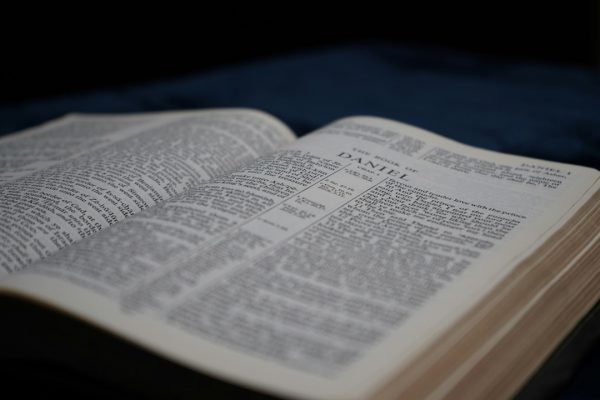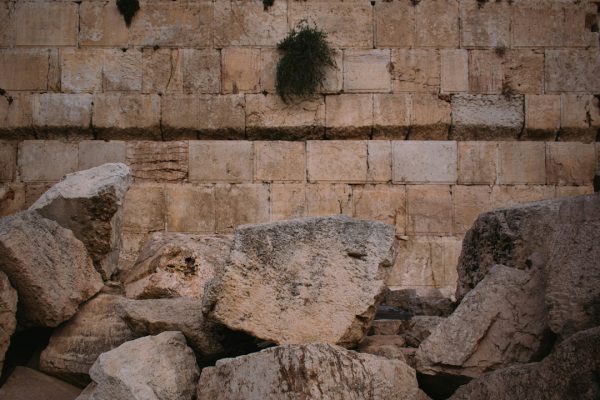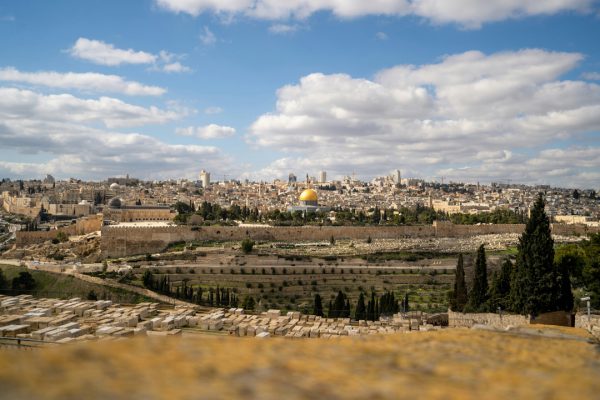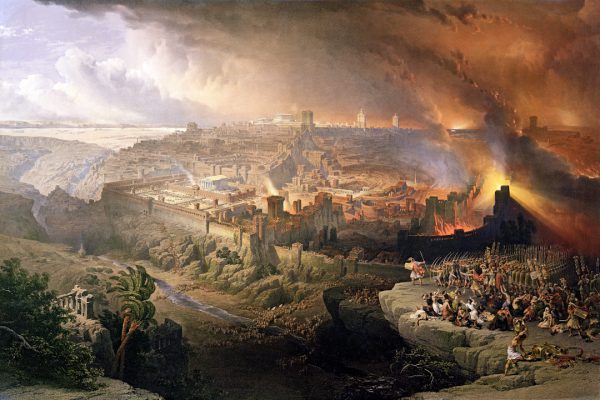When John the Baptist prepared the way for the coming of the Lord, he baptized “with water for repentance” (Matt. 3:11). When Jesus began his ministry, his first words were, “The time is fulfilled, and the kingdom of God is at hand; repent and believe in the gospel” (Mark 1:15). The apostles preached repentance (Luke 24:46-47) and so did Paul (Acts 17:30-31), and when Jesus speaks to the seven churches in John’s revelation, he calls most of them to repent (Rev. 2-3). Centuries later, when Martin Luther wrote his ninety-five theses to challenge and reform the catholic church, his first thesis was: “When our Lord and Master Jesus Christ said ‘Repent,’ he intended that the entire life of believers should be one of repentance.” The Christian life is a life of repentance, of turning from sin and turning in faith toward Jesus Christ.
In Psalm 51 we are given all the recipe for true and proper repentance. The superscription of this psalm tells us David wrote it “when Nathan the prophet went to him, after he had gone in to Bathsheba” (see 2 Sam. 11-12). In one sense, this psalm is David’s greatest victory, more than any military campaign he led, even greater than his victory over Goliath. But it’s not only a great victory for David; this psalm is a great gift and guide for the church. It has been preserved for us in holy Scripture because we need to be like David here.
What we will see from the first nine verses of Psalm 51 is that repentance is the way to life for both ruined and redeemed sinners. The only way out of humanity’s downward spiral into sin begins here, for this is where God in Christ has promised to meet us, to save us, to heal us, and to set us free.
1. Dependence on God’s Character
David begins where all sinners must begin, crying out for mercy (Ps. 51:1). He knows that he has no claim on any favor or blessings whatsoever. He knows what he deserves, so the only thing he can do is cast himself on the mercy of God. David asks God to cleanse him all the way down to the very fibers of his nature, like only God can, so that he can be reconciled and restored to fellowship with Him.
But what is the basis for David’s request? On what does he base his plea for purging? It’s not his anointing, his kingship, or past victories, but God’s character. David appeals to who God has revealed himself to be. He is the God who is merciful and gracious, abounding steadfast love, who provides a way for his people to be washed and cleansed (Ps. 51:1-3). David says, “I’m not asking for grace for anything good I’ve done, or for who I am, but because of who you are.”
Our sin will keep us from turning to God in repentance unless we are persuaded that he is a God of mercy and grace, and full of steadfast love toward us. Calvin said it well: “The truth is, that we cannot properly pray for the pardon of sin until we have come to a persuasion that God will be reconciled to us.”1John Calvin, Commentary on the Book of Psalms, vol. 2 (Bellingham, WA: Logos Bible Software, 2010), 297.) If we think God despises us as sinful, dirty, and disgusting, we will be driven to fear and despair. But when we know he is a Father who is runs to meet us with open arms and welcome us home, even as we are stained with the filth of the pig pen, we will be set free to turn to him.
This idea is part of the Westminster Catechism’s definition of repentance: “Repentance unto life is a saving grace, whereby a sinner, out of a true sense of his sin, and apprehension of the mercy of God in Christ, does, with grief and hatred of his sin, turn from it unto God.” If David repented in view of God’s mercy, how much more should we repent now that God has given us his Son, our Lord Jesus Christ, who died so that our sin might be blotted out, washed away, and cast into the sea.
2. Confession of Sin
The reason David cries for mercy is found in Psalm 51:3-6, where David confesses his sin. There are several things we learn about sin and proper confession. First, David does not sugarcoat his sin, cover it up, ignore it, or play the victim card. He acknowledges he has sinned, first and foremost, against God, and agrees completely with God’s righteous verdict of “guilty” (Ps. 51:4).
Second, David acknowledges the extent of his sin and fallenness (Ps. 51:5). He is not blaming his parents or excusing his sin by saying, “I was born this way.” Instead, he realizes he was infected with sin from the moment his life began at conception. Derek Kidner writes, “His crime, David now sees, was no freak event: it was in character; an extreme expression of the warped creature he had always been, and of the faulty stock he sprang from.”2Derek Kidner, Psalms 1–72: An Introduction and Commentary, vol. 15, Tyndale Old Testament Commentaries (Downers Grove, IL: InterVarsity Press, 1973), 208. While not a silver bullet proof-text, this verse does help convey what the church has believed about “original sin”: that mankind is born in sin, inheriting the sin and guilt of Adam’s fall. It does not mean we cannot do good or that we are pure evil, no longer made in God’s image, but that we are naturally bent toward sin. Sin is not just a matter of what we do but who we are.
Third, David acknowledges that, while God delights in truth and teaches wisdom, David has ignored God’s will and teaching in his conscience (Ps. 51:6). But this is why, in the fulness of time, God sent his Son. Unlike David, and all those born in sin under Adam, Jesus was conceived by the Holy Spirit and born of the virgin Mary. Jesus experienced life in a fallen world, but he did not inherit a fallen and sinful human nature. That is why Jesus can be our Redeemer, because he was tempted as we are, yet without sin. He was the faithful, trustworthy Son who perfectly obeyed for us. And his resurrection proves his sacrifice for sin was accepted, and that he was the sinless Son of God, who was raised for our justification.
3. Expectation of Restoration
David not only casts himself on God’s mercy and confesses his sin, but he also expects to be restored and reconciled to God. The verbs in Psalm 51:7-8 that look like commands can actually be translated as future verbs (“you will purge,” “you will wash,” “you will let me hear joy,” “you will cause my bones to rejoice”). Because David is staking everything on God’s mercy, he is confident that God will restore him.
David knew that there was no sacrifice for murder and adultery; the punishment was execution, so David asks for God himself to purge him and wash him. But David isn’t merely wishing it. He knows he shall be clean and whiter than snow. He knows God doesn’t do things half-heartedly.
David has heard judgment from the Lord; his bones have been broken, but he knows that judgment is not the last word. He will hear shouts of joy and gladness as the prodigal son returns home. His broken bones will be strengthened so that he can dance. The joy of the Lord would be his strength. This confident expectation in God’s mercy is precisely why he’s repenting! So, in verse 9 David returns to where he began, asking God to graciously forget his sins and blot them out.
Repentance: Not Just Restoration but Transformation
When we repent like David, we too can have a confident expectation that God will restore us. But as the rest of the Psalm shows us, the goal of repentance is not merely restoration but transformation (Ps. 51:10-12), and that will lead to gospel proclamation (Ps. 51:13-15) and the restoration of Israel (Ps. 51:18-19). For what David believed and looked forward to by faith has now been revealed in all its fullness.
The good news is that God in Christ has provided a way for us to be cleansed of sin once and for all, doing what the blood of bulls and goats could never fully do. There is a solution that gets down into the very fibers of our nature to wash away the deepest stains, that can make us whiter than the best bleach money can buy. There is a fountain of forgiveness that has been opened, as Zechariah said, that would cleanse us from sin and uncleanness, and it flows from the cross of Jesus Christ (Zech. 13:1; Acts 2).
It the precious blood of Jesus that frees us from our sins (Rev. 1:5). It is his blood that cleanses us and secures for us an eternal redemption (Heb. 9:12). It’s blood of the lamb that makes the robes of the saints whiter than snow (Rev. 7:14), and that gives us the right to the tree of life in the new creation and to enter the gate of the new Jerusalem (Rev. 22:14).
We must not make room or and accommodate sin in our lives; we must confess it to death. And if we do, God is faithful and just to forgive us our sins and cleanse us from all unrighteousness (1 John 1:5-10). The most secret and shameful sin can be told to Jesus. You cannot shock him. You can’t confuse him; you cannot bother him. The joy and gladness that come from forgiveness and fellowship with God is not for nice, religious people, who have it all together. No, the promise of forgiveness and restoration is for real, sick, selfish, foolish, and broken sinners, like you and me.
So run to Jesus and repent; tell him everything and be set free.




